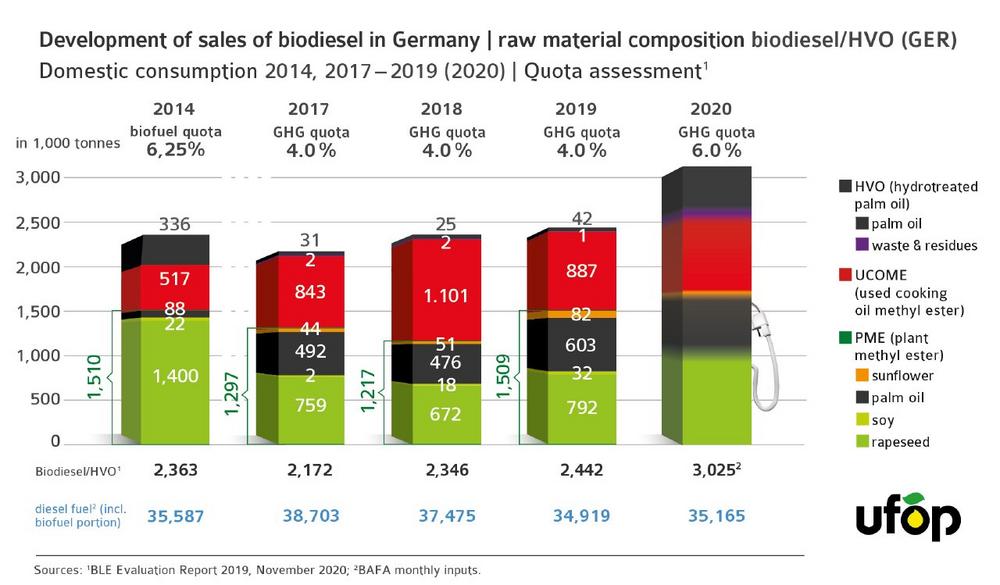The diesel fuel standard DIN EN 590 limits the incorporation rate of fatty acid methyl ester (biodiesel) to a maximum of 7 per cent by volume. According to the standard, HVO can be blended at up to 26 per cent. The UFOP has estimated the share of biodiesel in fulfilling the quota requirements at approximately 2.46 million tonnes and that of HVO at approximately 0.56 million tonnes. The association has pointed out that quota requirements were easily met despite the fact that quotas could not be carried over to 2020 from previous years. These and other options to meet the quota obligations can and will be applied in 2021. Against this background, the UFOP has called for the quota on GHG emission to be raised to 6.5 per cent this year already. From 2022 onwards, more ambitious increases are possible and urgently needed in the interests of climate protection, the UFOP has emphasised referring to the opinion of the Bundesverband Bioenergie (BBE), the German Bioenergy Association, on the Federal Government’s draft bill for the future development of the greenhouse gas reduction target.
The UFOP has strongly underlined the need for action to stop the use of palm oil in biofuels production and for credits towards the cap on greenhouse gas emissions. This step would raise the domestic and European feedstock potential instead of promoting exports of rapeseed oil-based biodiesel. The UFOP therefore welcomes the fact that the German government is making use of the authorisation in the EU Commission’s Delegated Regulation (2019/807) to cease giving credits for palm oil-based biofuels from 2026. However, France and Austria are showing that palm oil can be excluded today, much earlier than the German government has planned.
The Union for the Promotion of Oil and Protein Plants e. V. (UFOP) represents the political interests of companies, associations and institutions involved in the production, processing and marketing of domestic oil and protein plants in national and international bodies. UFOP supports research to optimise agricultural production and for the development of new recycling opportunities in the food, non-food and feed sectors. UFOP public relations aim to promote the marketing of domestic oil and protein plant end products.
UFOP – Union zur Förderung von Oel- und Proteinpflanzen e.V.
Claire-Waldoff-Str. 7
10117 Berlin
Telefon: +49 (30) 2359799-40
Telefax: +49 (30) 2359799-99
http://www.ufop.de
Telefon: +49 (30) 31904-225
E-Mail: s.arens@ufop.de
![]()

